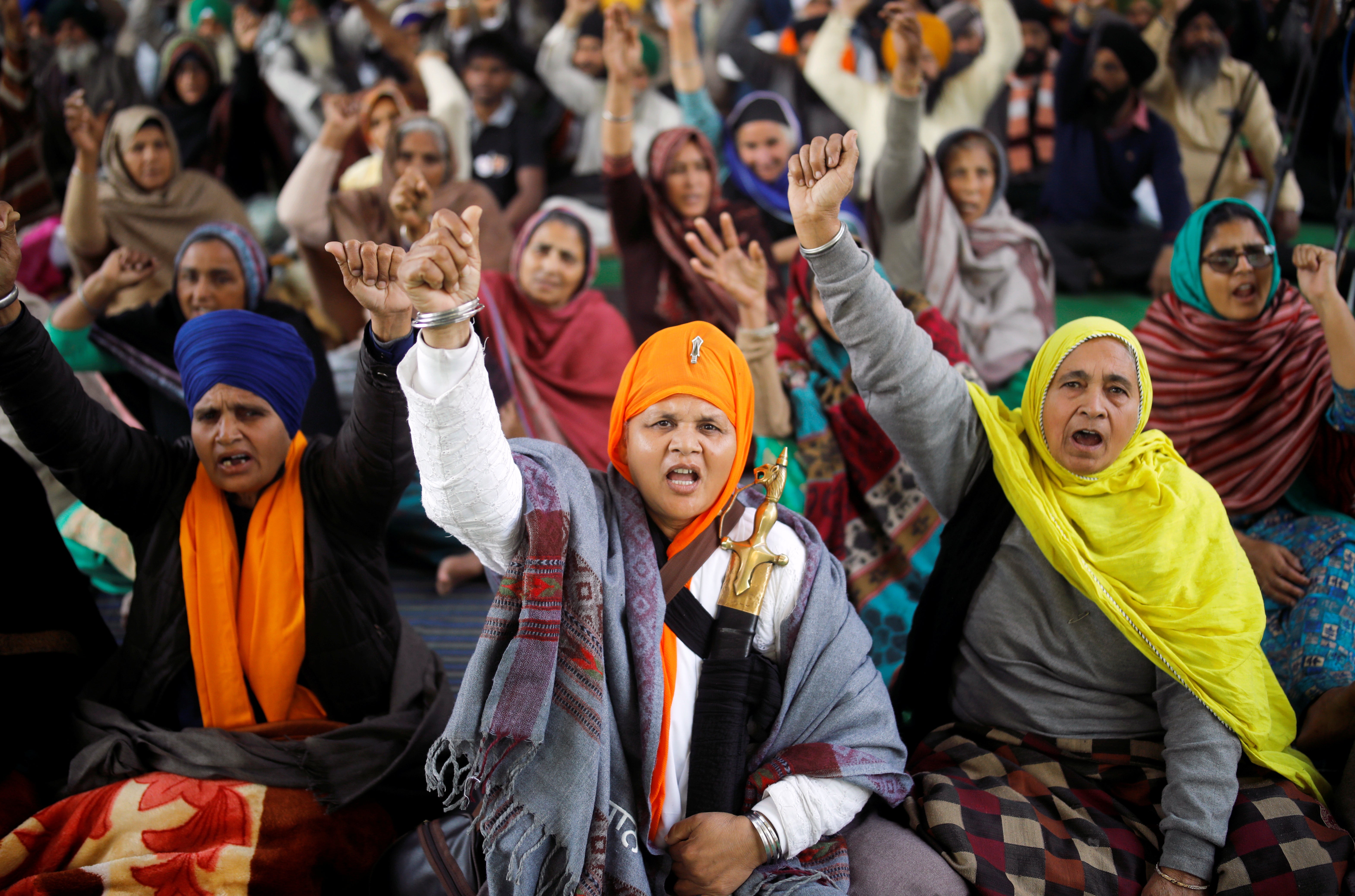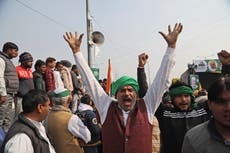India cuts off internet near Delhi as farmers begin hunger strike
Indian authorities often block internet services when they believe there will be unrest, although the move is unusual in the capital.

Your support helps us to tell the story
From reproductive rights to climate change to Big Tech, The Independent is on the ground when the story is developing. Whether it's investigating the financials of Elon Musk's pro-Trump PAC or producing our latest documentary, 'The A Word', which shines a light on the American women fighting for reproductive rights, we know how important it is to parse out the facts from the messaging.
At such a critical moment in US history, we need reporters on the ground. Your donation allows us to keep sending journalists to speak to both sides of the story.
The Independent is trusted by Americans across the entire political spectrum. And unlike many other quality news outlets, we choose not to lock Americans out of our reporting and analysis with paywalls. We believe quality journalism should be available to everyone, paid for by those who can afford it.
Your support makes all the difference.India blocked mobile internet services in several areas surrounding New Delhi on Saturday as protesting farmers began a one-day hunger strike after a week of clashes with authorities that left one dead and hundreds injured.
Angry at new agricultural laws that they say benefit large private buyers at the expense of producers, tens of thousands of farmers have been camped at protest sites on the outskirts of the capital for over two months.
A planned tractor parade on Tuesday’s Republic Day anniversary turned violent when some protesters deviated from pre-agreed routes, tore down barricades and clashed with police, who used teargas to try and restrain them.
Sporadic clashes between protesters, police and groups shouting anti-farmer slogans have broken out on multiple occasions since then.
On Saturday, India’s interior ministry said internet services at three locations on the outskirts of New Delhi where protests are occurring had been suspended until 11pm on Sunday to “maintain public safety”.
Indian authorities often block internet services when they believe there will be unrest, although the move is unusual in the capital.
At the main protest site near the village of Singhu, on the northern outskirts of the city, there was a heightened police presence as hundreds of tractors arrived from Haryana, one of two states at the centre of the protests.
Farm leaders said Saturday’s hunger strike, to coincide with the 73rd anniversary of the death of Indian independence leader Mahatma Gandhi, would show Indians that the protesters were overwhelmingly peaceful.
“The farmers’ movement was peaceful and will be peaceful,” said Darshan Pal, a leader of the Samyukt Kisan Morcha group of farm unions organising the protests.
“The events on 30 January will be organised to spread the values of truth and non-violence.”
Agriculture employs about half of India’s population of 1.3 billion, and unrest among an estimated 150 million landowning farmers has become one of the biggest challenges to the government of prime minister Narendra Modi since first coming to power in 2014.
Eleven rounds of talks between farm unions and the government have failed to break the deadlock. The government has offered to put the laws on hold for 18 months, but farmers say they will not end their protests for anything less than a full repeal.



Join our commenting forum
Join thought-provoking conversations, follow other Independent readers and see their replies
Comments